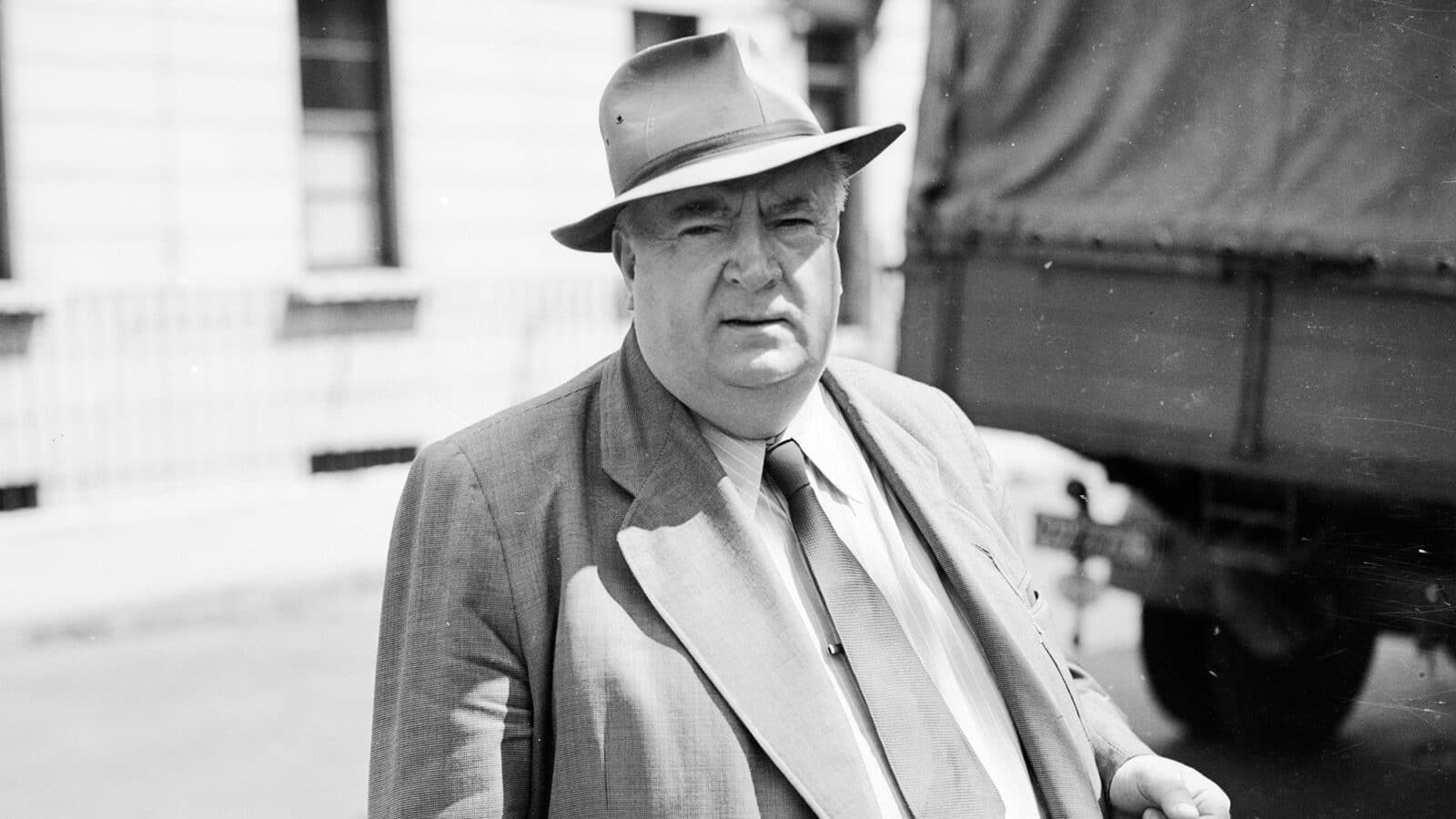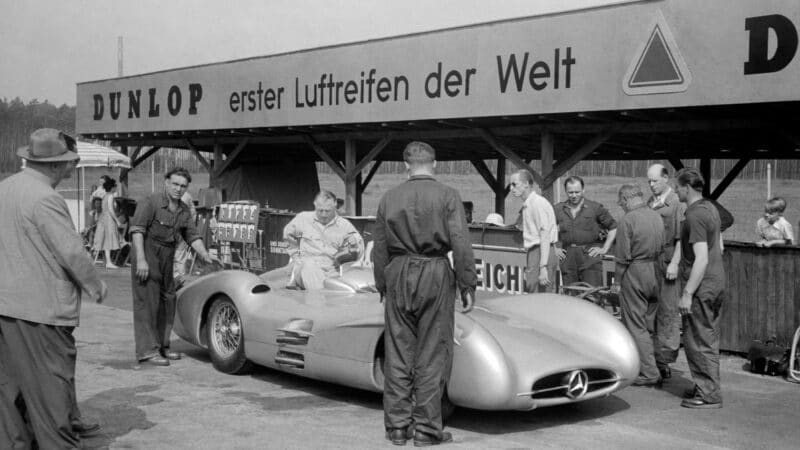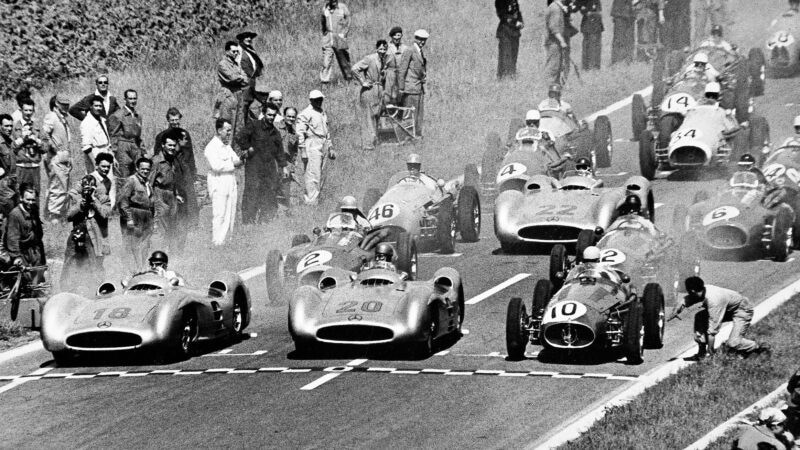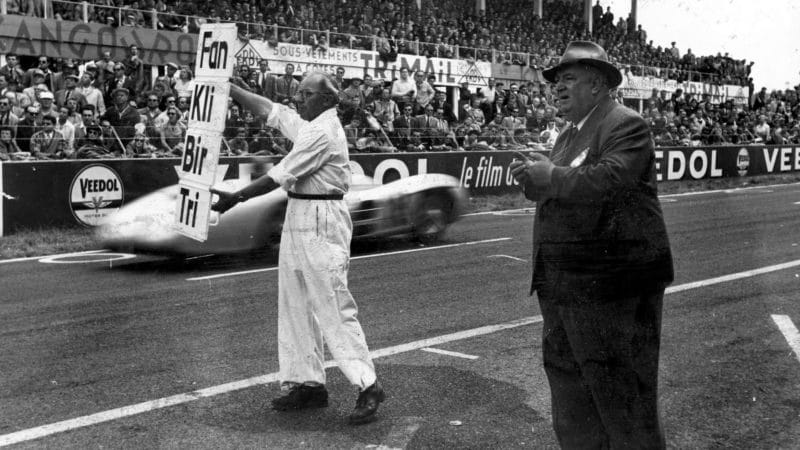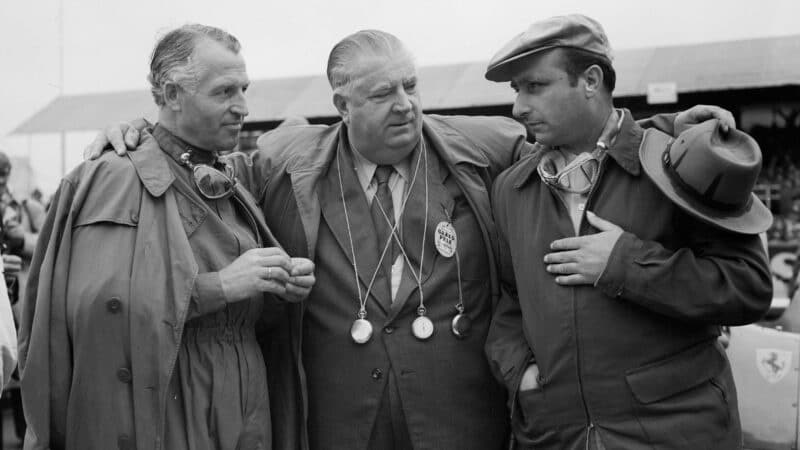It is entirely appropriate that this series on great team managers should begin with Alfred Neubauer, for he invented the job. Back in the early twenties, drivers only found out what had been going on in a race after it was all over. At Avus in 1926 Neubauer was shocked to find that his friend Rudolf Caracciola did not know that he had won the very first German GP until he was surrounded by jubilant supporters.
Neubauer resolved to do something about this ridiculous situation„ as be recalled in his autobiography Speed Was My Life.
“I settled down to work out a sort of code system with numbers and letters painted on small boards and a series of coloured flags. Then I explained my new system to the [Mercedes] drivers, who now had only to glance at the pits as they raced past to pick up invaluable information.”
Three months later, at Solitude, he introduced these pit signals which helped Mercedes to a 1,2,3 victory. This simple move changed the face of motor racing.
Born in Northern Bohemia (now part of Czechoslovakia) in 1891, Neubauer went to military school before joining the Imperial Austrian Army. Shortly before the end of WWI he was appointed adviser on motorised artillery equipment at Austro-Daimler, where he met Professor Ferdinand Porsche. After the war Porsche invited him to join the company as Director of the Road Testing Department.
Alfred had ambitions to be a racing driver, and his friendship with Porsche won him a place in the factory team for the 1922 Targa Florio. Driving an 1100cc Sascha Austro-Daimler, Neubauer finished 19th. When Porsche joined Daimler in 1923 he took Neubauer with him. He drove in the Targa again in 1924 in the Mercedes team with Christian Lautenschlager and Christian Werner, who won. Mercedes took the team prize, with Neubauer in 15th place. Later, at the Semmering hillclimb, Alfred was mortified to find he was almost 40 seconds slower than Werner, and when his fiancee, Hansi, told him that he had driven “like a nightwatchman”, he decided that he had better do something else.
His bosses at Daimler had already noted his flair for organisation and when the company merged with Benz in 1926 they put him in charge of the racing team. For the next four years the company ran the vast `White Elephants’ – the SS, SSK and SSKL sportscars – with great success, but the Depression that followed the Wall Street Crash of 1929 forced Mercedes to cancel their racing programme.
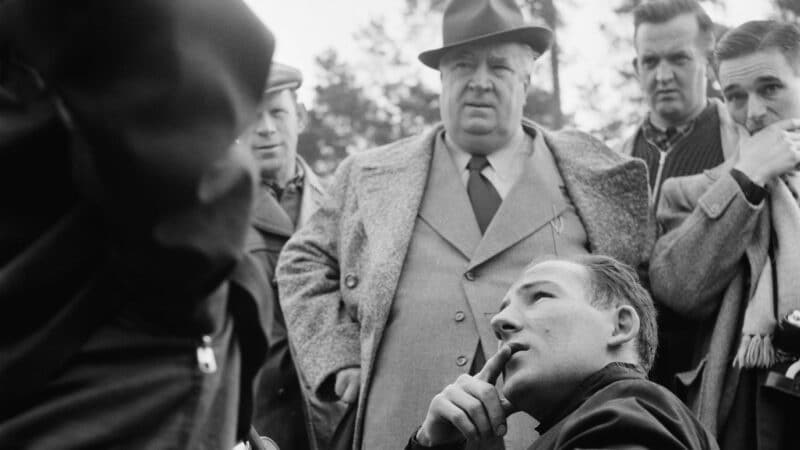
With Stirling Moss in ’55
By now Neubauer had established a firm friendship with the brilliant young Rudolf Caracciola and, in order to save both their jobs, he persuaded Mercedes to sell Rudi a new SSKL and throw in a mechanic and transporter. In return, Caracciola would share all prize money with the firm. The deal worked splendidly in 1931 when Rudi won 11 events, but Mercedes were seriously strapped for cash and had to pull out of the deal at the end of that year. Caracciola joined Alfa Romeo.
Late in 1932 the new firm of Auto Union invited Neubauer to be their team manager when the new 750kg Grand Prix formula came into being in 1934. Mercedes had given no indication of racing plans and the new job would reunite him with his mentor, Porsche. He signed with Auto Union, only to be persuaded to stay with Mercedes by the new managing director, Wilhelm Kissel, who assured him that Mercedes would soon be back on the tracks.
In 1933 he began forming the new Mercedes-Benz GP team which naturally he wanted to build around his great friend Caracciola. Sadly, Rudi suffered a very bad accident during practice for the Monaco GP and for some time it appeared that his career was over. More to keep up Rudi’s spirits than anything else, Alfred told him that his place in the Mercedes team was assured. He then set about finding two other drivers and chose Manfred von Brauchitsch and Luigi Fagioli…
Caracciola returned to racing in 1934, winning the new European Drivers Championship the following year, and again in 1937 and ’38. He and Neubauer remained close friends until 1939, when Hermann Lang stole the older man’s thunder, and the Championship. Caracciola resented Lang’s success and accused Neubauer of favouring him, failing to accept that Lang was now the faster driver and that the team manager had to put him first.
